Custom Metal Forging Services
- We will select high-quality metal materials, perform necessary pretreatment on them, and then design reasonable forging processes and temperature control to reduce defects in forged parts (such as nonmetallic inclusions, surface wrinkles, cracks, laps, scale pits, etc.) and waste of raw materials.
- Various Forging Methods
- Dimensional Accuracy: within ±0.05 mm(±0.00197 inches)
- Cost-effectivenss for Large-Scale Production
- Versatitity In Design and Meterial Choice
- Rapid Prototyping within 7 days
Based on Temperature
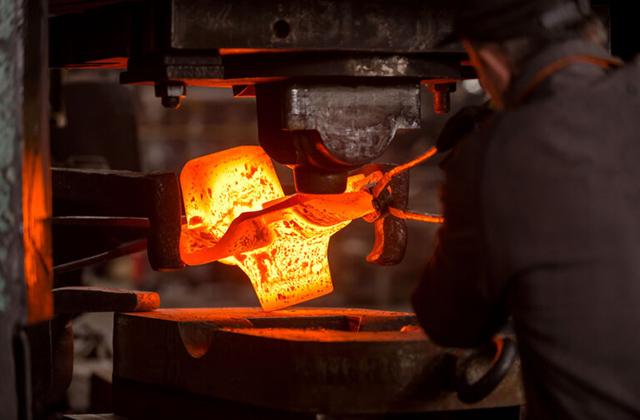
Hot Forging
- Heats metal above 1,150°C (2,100°F), shapes using high-pressure machinery.
- Allows easier shaping, refined grain, and improved properties.
- Suitable for all forging methods.
- Ideal for automotive, aerospace, machinery, and structural components.
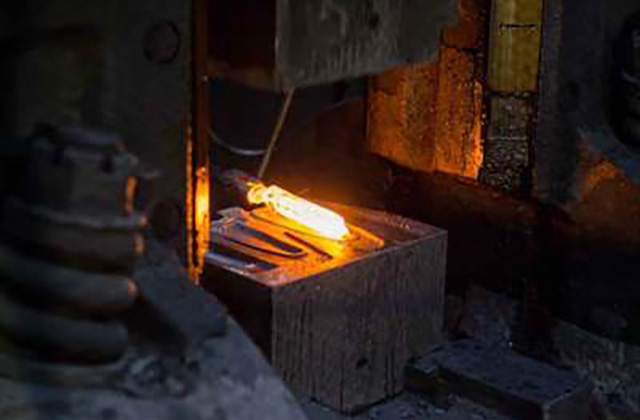
Warm Forging
- Performed at 650°C to 1,100°C with moderate heating.
- Reduces energy, improves accuracy, and less oxidation.
- Generally not suitable for Hammer Forging.
- Suitable for automotive parts, precision gears, and moderate deformation.
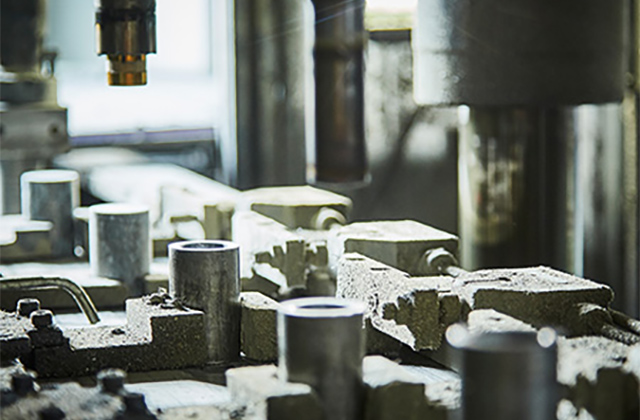
Cold Forging
- Done near room temperature, shapes metal without heating.
- Provides high accuracy, excellent finish, increased strength.
- Generally not suitable for Hammer and Drop Forging.
- Perfect for fasteners, bolts, nuts, and precision parts.
Based on Equipment Used
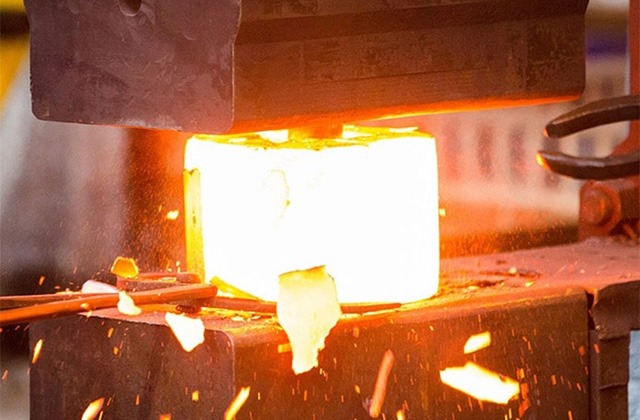
Hammer Forging
- Utilizes repeated blows from a hammer to shape the metal.
- Perfect for creating intricate shapes with exact measurements.
- Used for high-strength tools, farm implements, and hardware components.
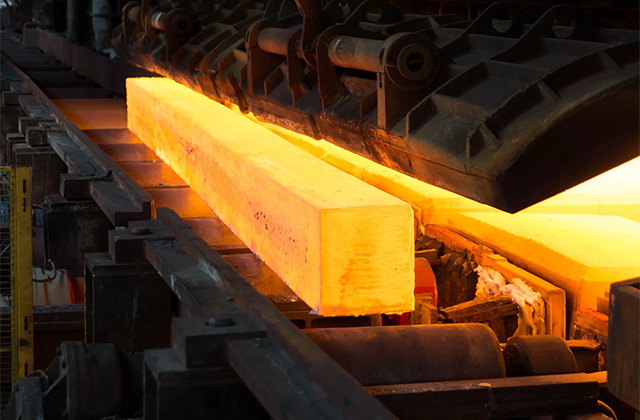
Drop Forging
- Entails striking the metal component with a hammer or other large weight.
- Often used for high-strength parts like automotive components and tools.
- Capable of producing high-quality, durable pieces with excellent surface finish.
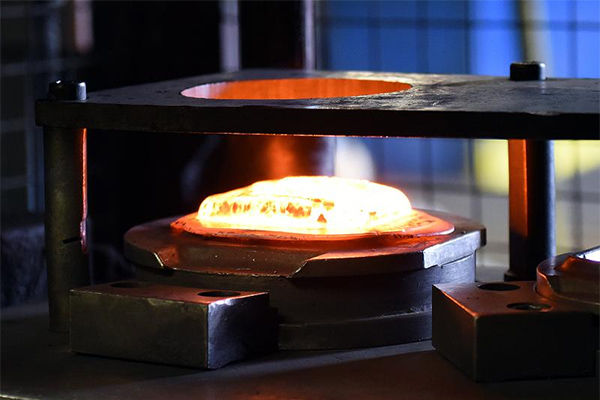
Press Forging
- Uses continuous pressure from hydraulic or mechanical presses to deform metal.
- Suitable for large-scale production and high-volume parts.
- Provides excellent control over the forging process, resulting in consistent quality.
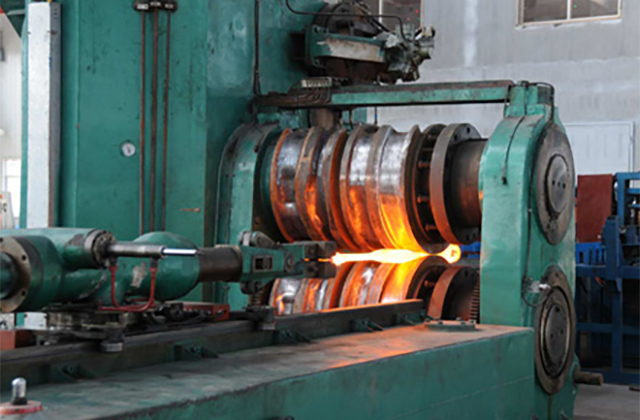
Roll Forging
- Thins and elongates metal by passing it through rotating rolls.
- Efficient for producing long products like rods and bars.
- Ensures a high-quality finish and consistent cross-sectional area.
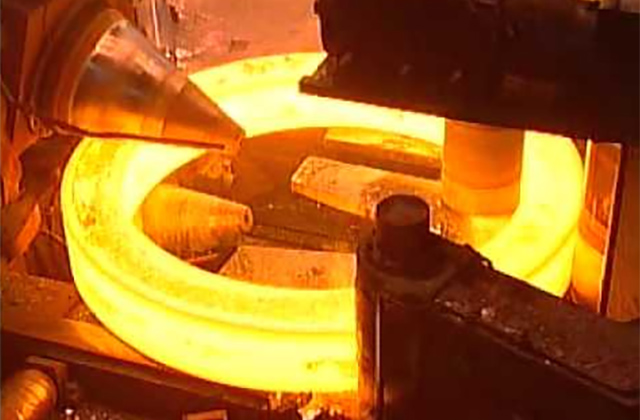
Ring Rolling
- Uses rolling mills to form rings from metal preforms.
- Produces high-strength rings with consistent circular cross-sections.
- Used for bearings, gears, flanges in aerospace, automotive, and oil industries.
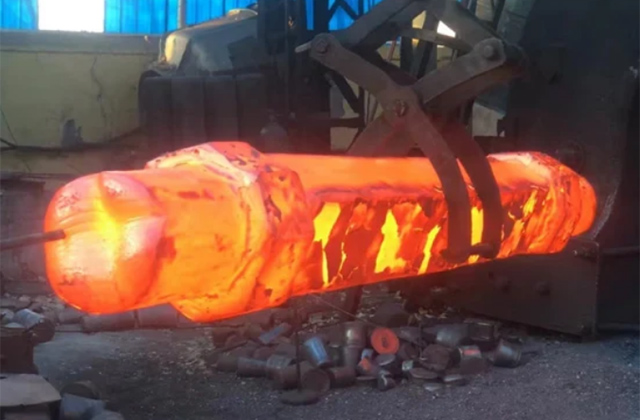
Swaging Forging
- Shaping metal by applying radial blows using a swaging machine.
- Ideal for producing tapered, pointed, or reduced-diameter parts.
- Used in aerospace, automotive, medical industries for instruments, shafts, and fittings.
Based on Die Configuration
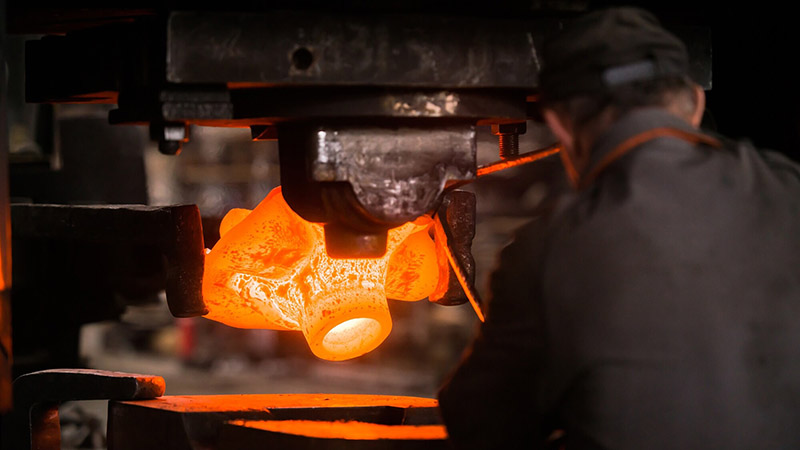
Open-Die Forging
- Shapes metal using dies that do not completely encase it.
- Uses simple, flat, or slightly contoured dies.
- Typically for large parts like shafts, rings, and disks.
- Common in the power generation, shipbuilding, and aerospace sectors.
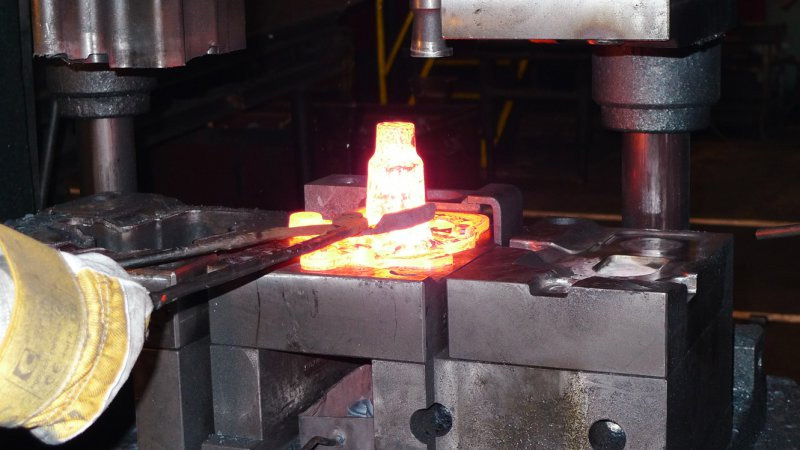
Closed-Die Forging (Impression Die Forging)
- Encases the metal in a die that functions like a mold.
- The dies hold impressions that match the desired shape.
- Offers a smooth surface finish and excellent dimensional precision.
- Used for automotive parts, tools, hardware, machinery components.
Based on Specific Techniques
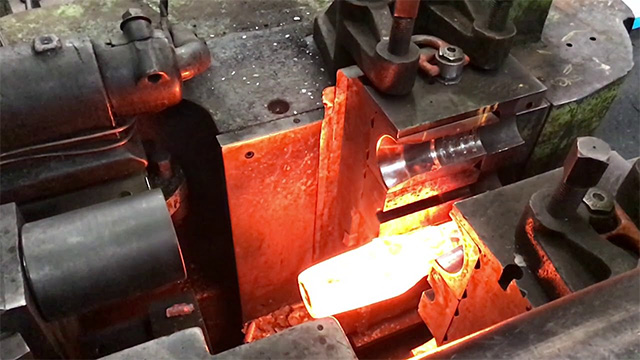
Upset Forging
- Compresses the length of the workpiece to increase its diameter.
- Produces parts with thicker cross-sections.
- Commonly used for bolts, screws, and fasteners.
- Applications in automotive, construction, and machinery industries.
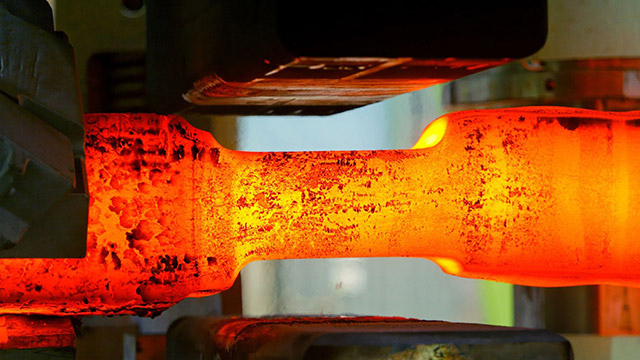
Coining Forging
- A precise, closed-die process squeezing metal into detailed shapes.
- Creates parts with precise dimensions and a superior surface finish.
- Typically applied to produce coins, medals, and finely detailed gears.
- Applications in minting, aerospace, and electronics industries.
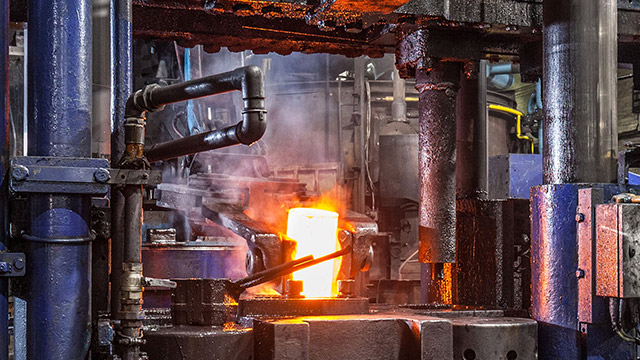
Extrusion Forging
- Forces metal through a die to create long, fixed cross-section profiles.
- Produces parts with uniform material properties.
- Commonly used for pipes, tubes, and rods.
- Applications in construction, automotive, and industrial sectors.
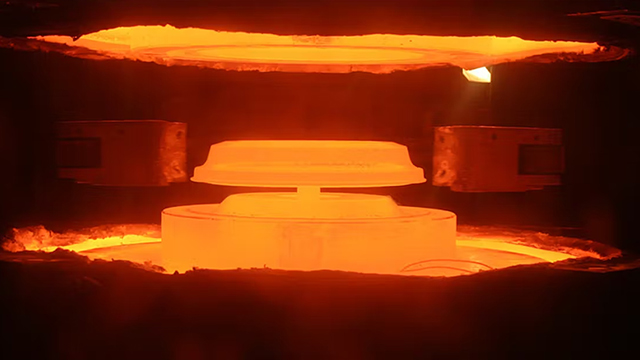
Isothermal Forging
- Maintains a constant temperature near the metal’s recrystallization point.
- Produces parts with uniform microstructure and properties.
- Commonly used for turbine blades and precision components.
- Applications in aerospace, energy, and high-performance industries.
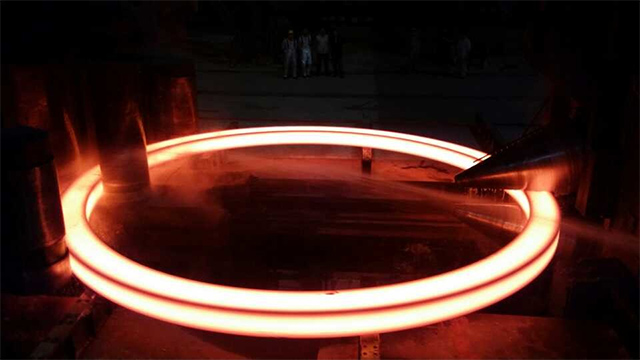
Seamless Rolled Ring Forging
- Tarts with open-die forging to create a donut shape.
- Produces high-strength, circular cross-section rings.
- Commonly used for bearings, gears, and flanges.
- Used across aerospace, automotive, oil, and gas sectors.
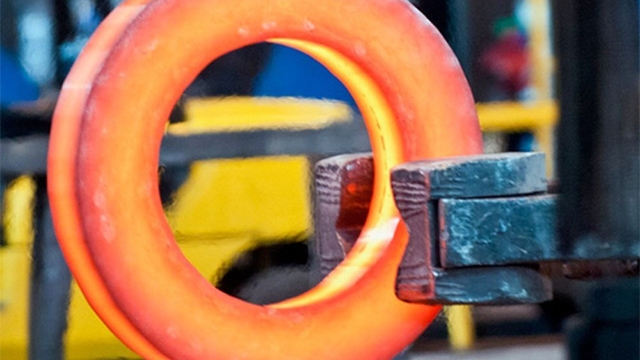
Precision Forging
- Produces near-net shape parts with minimal post-forging machining.
- High accuracy and tight tolerances achieved.
- Minimal waste of material during production.
- Ideal for high-performance gears, aerospace components, precision tools.
Materials For Forging Parts
Stainless Steel | 303 Stainless Steel | 304 Stainless Steel | 316 Stainless Steel | 410 Stainless Steel | 420 Stainless Steel |
430 Stainless Steel | 434 Stainless Steel | 17-4 PH Stainless Steel | 15-5 PH Stainless Steel | 13-8PH Stainless Steel | |
Alloy Steel | 4130 Alloy Steel | 4140 Alloy Steel | 4340 Alloy Steel | 8620 Alloy Steel | 9310 Alloy Steel |
6150 Alloy Steel | 9260 Alloy Steel | 300M Alloy Steel | AISI 4145 Alloy Steel | SCM440 Alloy Steel | |
Carbon Steel | AISI 1018 | AISI 1020 | AISI 1045 | AISI 1050 | AISI 1060 |
AISI 1075 | AISI 1080 | AISI 1095 | A36 Carbon Steel | ||
Tool Steel | W1 Tool Steel | O1 Tool Steel | A2 Tool Steel | D2 Tool Steel | H13 Tool Steel |
H11 Tool Steel | M2 Tool Steel | M42 Tool Steel | S7 Tool Steel | P20 Tool Steel | |
Aluminum Alloy | 2014 Aluminum Alloy | 2024 Aluminum Alloy | 5083 Aluminum Alloy | 5754 Aluminum Alloy | 6061 Aluminum Alloy |
6063 Aluminum Alloy | 7075 Aluminum Alloy | 7050 Aluminum Alloy | 1100 Aluminum Alloy | 3003 Aluminum Alloy | |
Copper Alloy | C260 (Cartridge Brass) | C360 (Free-Cutting Brass) | C510 (Phosphor Bronze) | C630 (Nickel-Aluminum Bronze) | C706 (90-10 Copper-Nickel) |
C715 (70-30 Copper-Nickel) | C17200 (Alloy 25) | C17510 (Alloy 3) | C655 (Silicon Bronze) | C110 (Electrolytic Tough Pitch Copper) | |
Magnesium Alloy | AZ31B Magnesium Alloy | AZ61A Magnesium Alloy | AZ80A Magnesium Alloy | ZK60A Magnesium Alloy | ZK61 Magnesium Alloy |
WE43 Magnesium Alloy | WE54 Magnesium Alloy | AM60 Magnesium Alloy | AM50 Magnesium Alloy | Elektron 21 Magnesium Alloy | |
Titanium Alloy | Ti-5Al-2.5Sn | Ti-6Al-2Sn-4Zr-2Mo | Ti-6Al-4V (Grade 5) | Ti-6Al-4V ELI (Grade 23) | Ti-6Al-6V-2Sn |
Ti-10V-2Fe-3Al | Ti-15V-3Cr-3Al-3Sn | Ti-3Al-8V-6Cr-4Zr-4Mo | Ti-5Al-5Mo-5V-3Cr | ||
Nickel Alloy | Inconel 625 | Inconel 718 | Hastelloy B-2 | Hastelloy C-276 | Monel 400 |
Monel K-500 | Invar 36 | Incoloy 800 | Rene 41 | Waspaloy | |
Nickel 200 | Nickel 201 | ||||
Superalloy | Haynes 188 Superalloy | A-286 Superalloy | Nitronic 50 Superalloy |
Our Metal Forging Parts
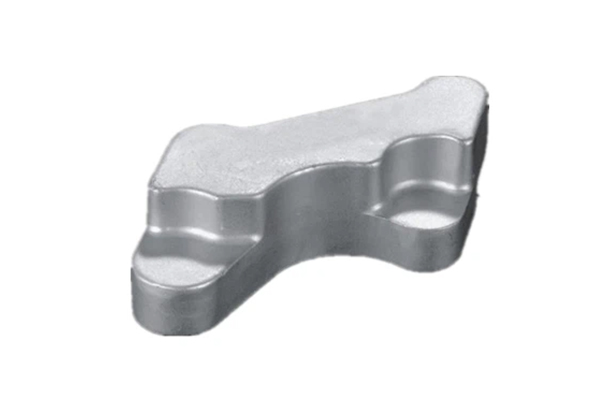
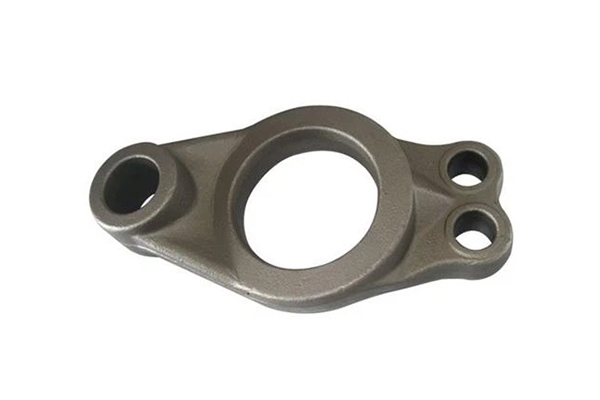
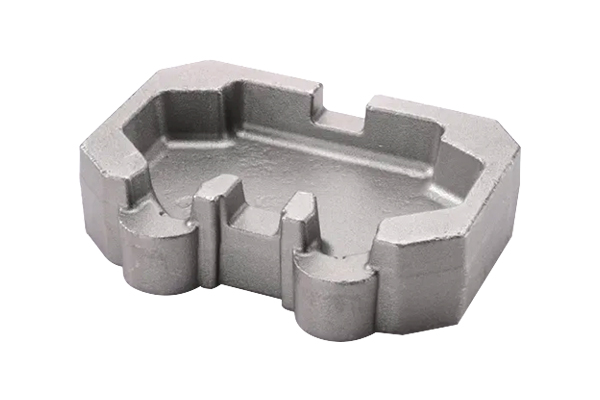
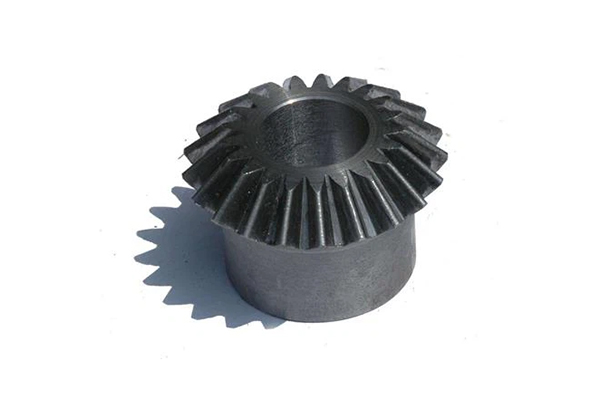
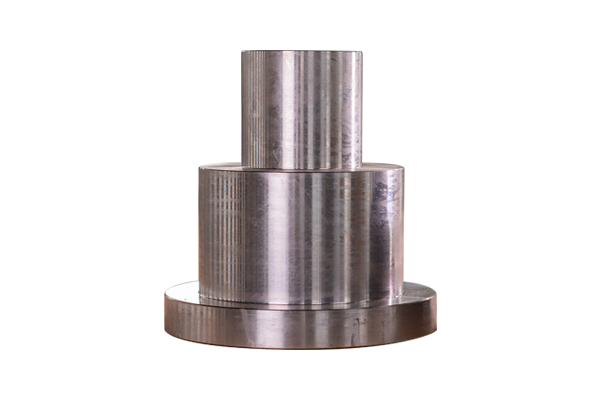
Forging Application

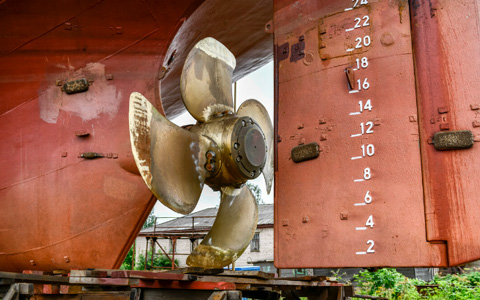
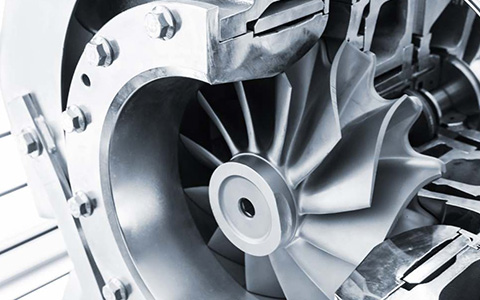
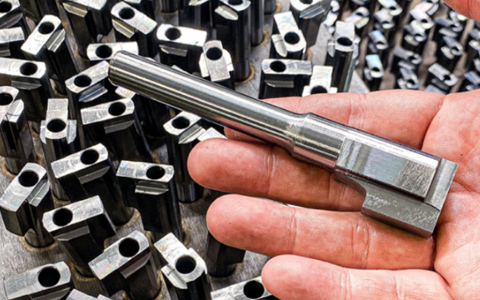



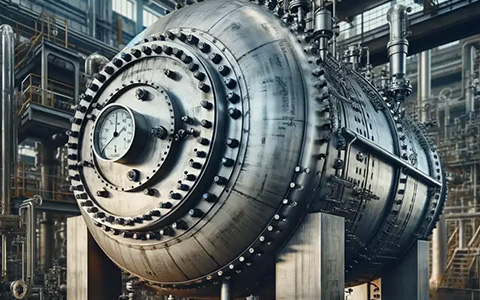
Popular Questions
Which materials can be used in open die drop forging?
Can hot and cold forging be used together in a manufacturing process?
How do open and closed forging vary from one another?
Open forging, sometimes referred to as open-die forging, is the process of forming metal between several dies that do not totally encapsulate the substance. Closed forging, also known as closed-die forging, creates more intricate and exact shapes by completely enclosing the metal in dies.
